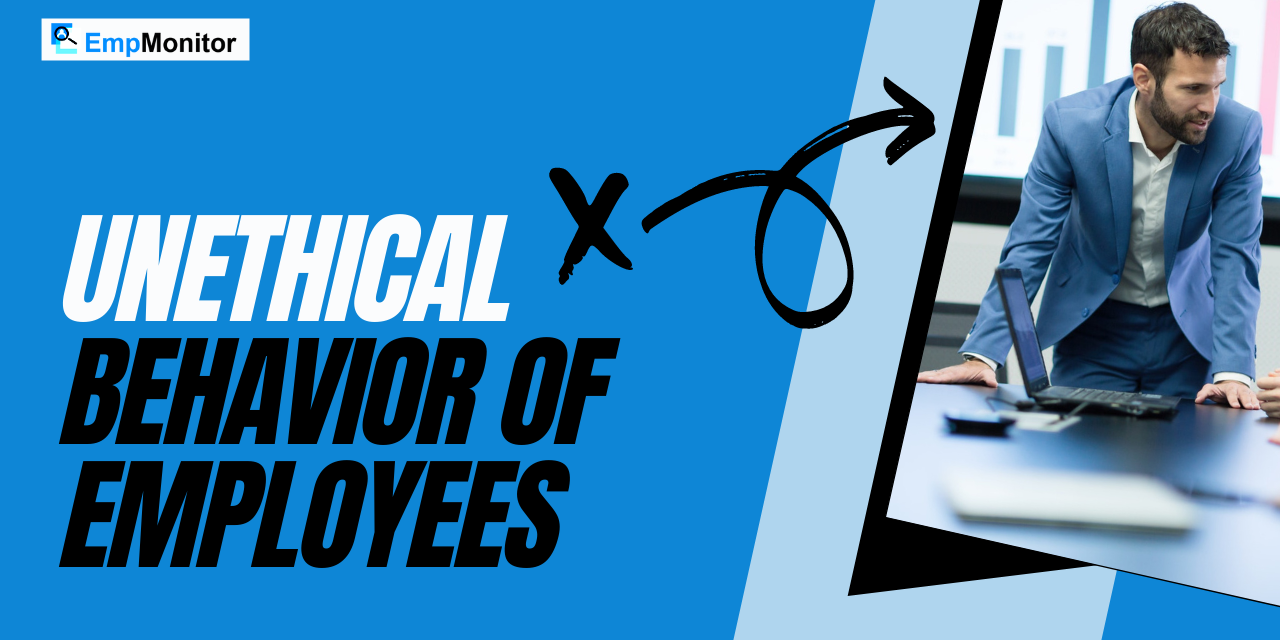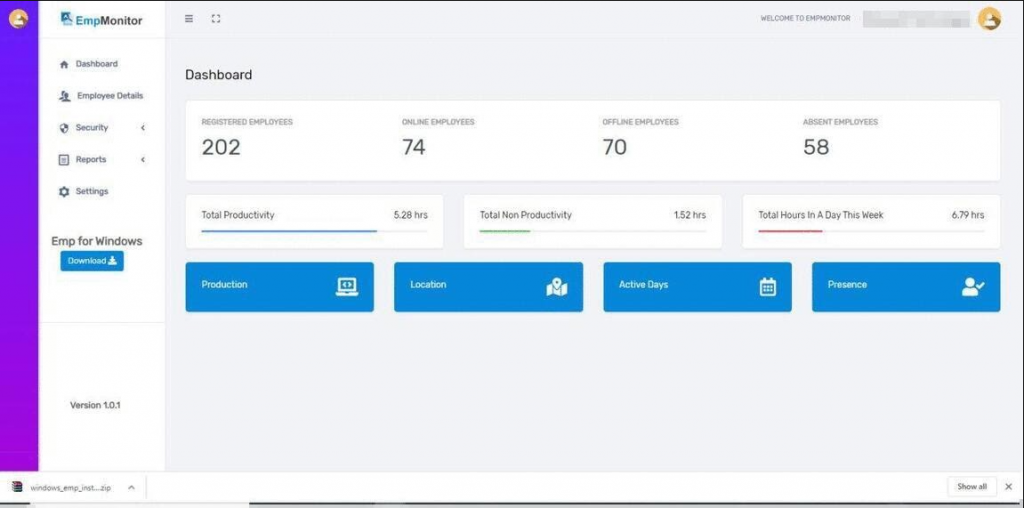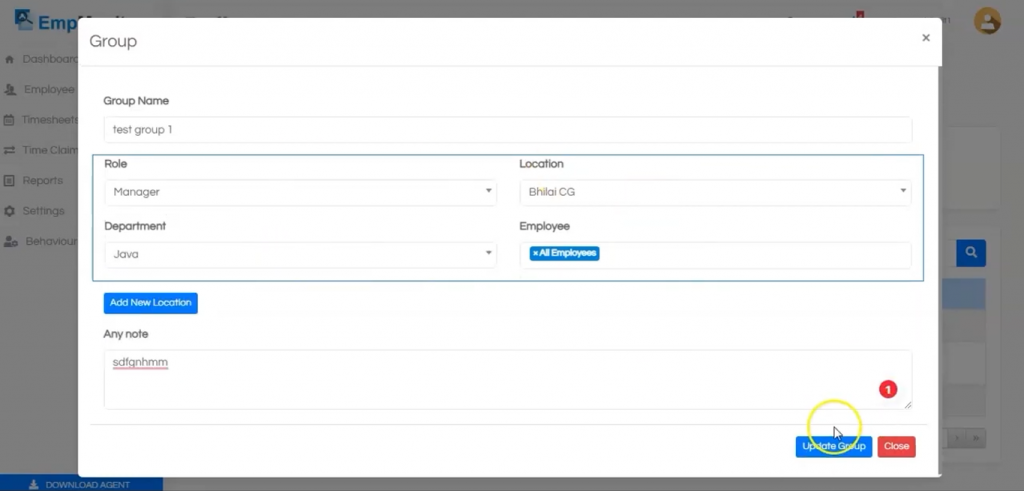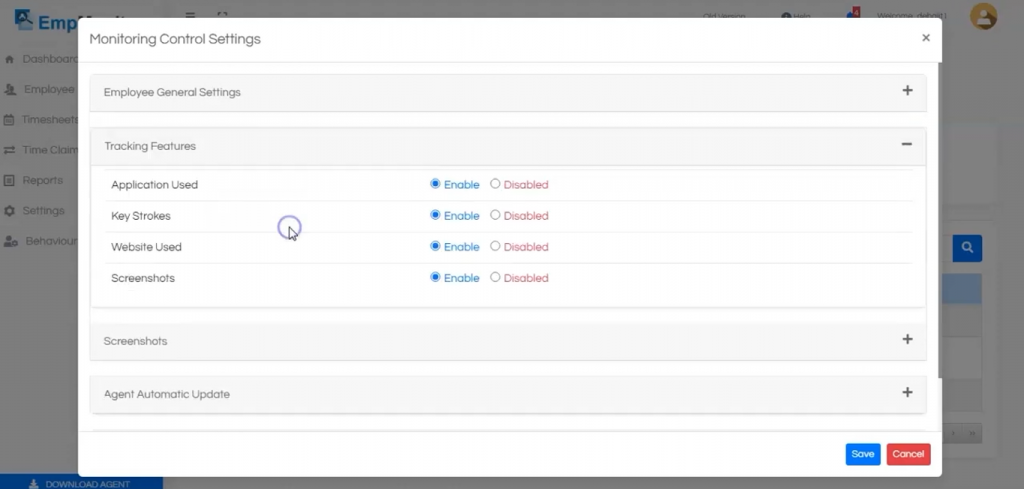Have you ever come across any unethical behavior in the organization? If you did, have you ever wondered whether it was unethical?
About 120 million individuals go to work every day. Moreover, over half of these employees had directly observed some sort of ethical wrongdoing in the last year. People frequently begin their misbehavior with minor infractions and then go down a slippery slope.
It is no secret that unethical employee behavior is becoming a growing concern for businesses. It can take many forms, from theft to the leaking of sensitive information to the misrepresentation of products and services. Inventory shrinkage, litigation, and penalties are just a few of the negative consequences of this type of behavior.
With said that, workplace ethics comes with a set of dynamic values that vary with people and their definition of a workplace. For some, it is a physical office they go to every day, while others, their home office.
Well! It does not matter whether you work from home or the office. In order to enhance productivity and preserve integrity, organizations should adopt ethical policies and behaviors- while imposing penalties on individuals who violate workplace ethics.
So, stay with us until the end of this blog, as we will uncover a few strategies for preventing unethical employee behavior. But, before we begin. Let’s understand what Workplace ethics truly means?
What is Workplace Ethics?
Work ethic refers to a collection of behavioral guidelines, moral concepts, and standards that promote a pleasant workplace environment. Having a good work ethic may lead to fair treatment of workers, which in turn inspires them and builds a sense of loyalty towards the company.
Simply put, it is the set of rules and regulations that need to be followed by all staff in the workplace. Employee rules and regulations are those that must be adhered to by every employee in the company.
Accordingly, it is fair to say that both employers and employees must be on the same page in order to have a mutually beneficial partnership. Companies must be impartial and helpful when it comes to evaluating and reviewing employees’ performance.
Examples of unethical behavior in the workplace
In simpler words, doing the right thing is ethical behavior. Unethical action is the exact opposite. In the workplace, unethical activity unquestionably encompasses any act that violates the law, such as stealing or assault. However, unethical activity can affect a wide range of fields. Listed below are the five most frequently observed unethical behaviors in the workplace.
1- Misusing company time
Misuse of business time is one of the most common unethical actions in the workplace. Taking time is essentially the same as taking money because employees get compensated for work they did not complete and is, therefore, unethical behavior & fraud. If time-stealing is rampant, the effects may be disastrous for a company’s finances.
There are numerous ways to steal time, some of which appear benign. For example, your staff may procrastinate on project completion, preferring to spend their time chatting or making personal phone calls instead. While it comes to lying about the number of hours they put into a project, employees can have a buddy punch in their card on the corporate time clock when they are not actually present.
2- Taking credit for others hard work
Have you ever had someone take credit for your work? In such a case, how did you feel? How did you deal with it? Were you successful in persuading your supervisor of the wrongdoing? These are just a few of the questions that emerge while dealing with a dishonest coworker who takes credit for your efforts.
Situations like these are unpleasant and unfair: You get blamed when things go wrong, and they receive the credit when things go perfectly. Whether it comes from a coworker or a superior, the behavior is absolutely unethical. It breaches the ethical ideal of fair treatment or fairness. If someone falsely claims a piece of credit, they are showing disdain for the individual who actually accomplished the effort. The idea is simple “I” usage should be reduced, while the use of “we” should be encouraged.
3- Lying to your employees
In and out of the office, lying is a trait that is despised. It destroys trust, ruins relationships, and may even get individuals into problems with the law.
Employees lie in the workplace for many reasons, with one falsehood laying the groundwork for many more. It could be a sales manager lying about the number of clients they can get in a month or an employee calling in sick merely to dodge a meeting.
Employees need to understand that lying about their jobs might lead to them losing their careers in the future. Employees, on the other hand, tend to lie out of fear of their boss. H.R. should establish a more welcoming atmosphere that encourages individuals to advance in their professions and supports them throughout the entire process.
4- Abusive behavior
Abuse and bullying in the workplace are illegal in several places. Abusive behavior is unethical and unprofessional in all circumstances. It might result in criminal and civil repercussions for you and your organization. Abusive behavior comprises aggressive, offensive, threatening, frightening, humiliating, or undermining actions with illegal intent. Verbal and physical abuse are both examples of this type of abuse.
No matter what happens, your firm must treat all employee accusations of abusive behavior seriously. A single incidence of abusive behavior does not inevitably result in a hostile workplace. Abuse might come in the form of a joke taken too far, an imprudent statement, or a blunder in the workplace environment. It is possible to fix them with an apology, coaching, and re-education, as well as a pledge not to repeat such actions again. In addition, if the abusive behavior persists, it can lead to a hostile workplace and hurt employees.
5- Data breaching
Security experts are aware that threats are constantly on the rise. However, there is one constant risk that remains the same: employees. People inside a company are frequently responsible for data breaches, both via ignorance and malicious intent.
Companies believe that the only way to prevent these types of data breaches is to educate their workers about the dangers of doing so and create a system where other employees may anonymously report any questionable conduct by their colleagues. Tools like EmpMonitor, on the other hand, may provide you with a wide range of capabilities and alert you to any unusual activity that has occurred.
Also check out our latest blogs:
09 Best Teamwork Games That Your Remote Employees Will Enjoy
05 Practices To Avoid Unethical Behavior In The Workplace
There are major consequences of unethical behavior in the workplace. Therefore, it is the need of the hour to overcome the unethical behavior of employees. Following are the 05 practices you can begin to increase an ethical atmosphere.
01- Create a code of conduct
A code of conduct is a policy that outlines principles and standards that all employees and third parties acting on behalf of the company must follow. It examines the organization’s goals and values and links them to professional conduct standards. In many workplaces, codes of conduct serve as a performance standard.
One of the most effective ways to improve a company’s performance is to create an impactful ethical code of conduct. Companies who regard a code just as a means of communicating legal regulations are missing out on a significant portion of the value that a code may bring. A well-written code can assist a business to:
- Prevent breaches of the law and regulations.
- Increase employee loyalty and retention.
- Encourage customers to stay with you longer.
- Strengthen your business partnerships with suppliers and other business partners.
- Build trust and respect among other stakeholders, including local communities, regulators, NGOs, and even rivals.
- Build a higher reputation for honesty by assisting the firm in doing what it says it will do.
02- Promote your values and lead by example
Almost every business has a list of principles that includes terms like honesty and integrity. It is essential to have these rules in writing, but they are worthless if they are not followed: you must do more than include them in the business description.
Impactful leaders may make a difference in the workplace by guiding workers in the right direction. They turn to you for guidance and motivation as a leader. Create a culture of trust and responsibility in the workplace by setting an example for your team.
03- Show Employees Appreciation
It goes without saying that workers who feel appreciated in their positions are more likely to be engaged at work and less likely to participate in unethical activity. If you enhance employee productivity and reduce turnover, you may save your organization thousands of dollars.
Loyal employees feel that a company values the hard work they put into accomplishing tasks daily. When a person is faithful, they are less likely to commit unethical behavior. Show appreciation to workers regularly to encourage loyalty. Consider offering top performers an extra day off every quarter or year. Or implement a bonus scheme in the sales section to encourage and reward hard work.
04- Leverage Monitoring Tools
The transition to remote work also prompted many companies to adopt employee monitoring software to oversee their off-site teams. Organizations may now use that technology to support compliance requirements, ensuring that they are audit-ready in any situation.
EmpMonitor is such a tool. If used properly, it may help you keep tabs on your workers while protecting their privacy. Using EmpMonitor, you can keep track of all of your activities such as signing in, break time and idle time, online sites visited, and so on. You may use this information to determine any unethical behavior as well as productivity and efficiency of your workers based on all of this data.
EmpMonitor offers many tools to ensure the productivity and efficiency of your employees:
Regular Screenshots: Regular screenshots at regular intervals guarantee that your staff are not sitting idle but are instead putting their all to the duties at hand.
Browsing History Details: You may monitor an employee’s online surfing history and frequently viewed web pages to guarantee they are not doing anything other than an office job.
Keystrokes: With EmpMonitor, you can see what your employees are typing on their keyboards. For up to 180 days, you may check the keystrokes that your staff entered onto their computers.
Productivity Reports: You can check the productivity report that shows the graphical representation of productivity from an employee in the firm.
Alert Notification: EmpMonitor sends alert notifications when an employee commits a mistake. Employees must follow the rules and regulations if they want them to be productive.
EmpMonitor provides all of these functions at one place and with just a few clicks. Let us take a brief look at how to use EmpMonitor’s monitoring control features.
1- Use your login credentials to access your EmpMonitor dashboard.
2- You will see a pop-up window when you go to Settings and click on the Monitoring Controls button.
3- Then click the Create Group option and fill in all the data such as Group name, Roles, Location, Departments & Employees.
4- All monitoring features are now customizable to your requirements. Tap on the Settings icon.
5-In this section, you will find the Employee General Settings and the Employee Tracking Time.
6- After inputting all the information, click on the Save button to begin tracking your employee.
05- Empower employees
When it comes to employee empowerment, it is all about accountability, trust. In addition to creating a more connected culture, a leader who effectively empowers their staff and opens the door to possibilities will also generate a better employee experience for everyone involved. But most executives don’t know how to empower their people without offering them a pay rise, a rise in status in the company, or total autonomy. Leadership may encourage employee empowerment in several ways.
To make the code even more relevant to employees, you may consider tying it to compensation incentives, such as an end-of-year bonus or more paid time off.
Wrapping It Up
There are numerous instances of unethical behavior in the job, whether it is to climb the corporate ladder, make more money, or please a manager’s demands. It’s a fact that workplace ethics are broken on a daily basis in every field. However, strengthening the company’s reputation may be done by setting clear standards and acting as role models for moral behavior.
What leads to unethical behavior in the workplace is a lack of accountability. So, make sure that there are clear rules and that all your employees know that they are accountable for their actions. This way, It is safe to say you will have no difficulties.
Now that we are at the end of the blog. Thank you for sticking with me, and I hope this blog can help you spread an ethical environment in your workplace.


















